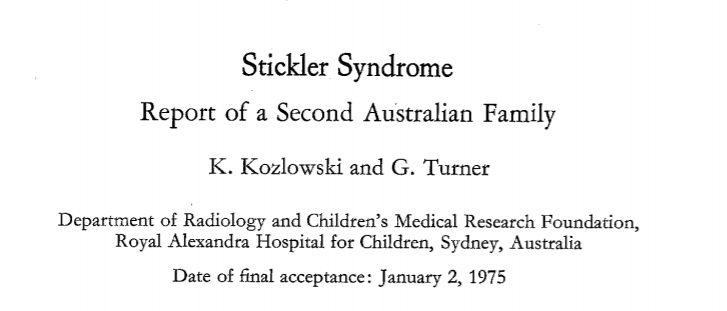
A journal has retracted a 45-year-old case study over concerns that the authors had failed to obtain proper informed consent from the family they’d described.
The article, “Stickler syndrome report of a second Australian family,” appeared in Pediatric Radiology, a Springer Nature title, in 1975. The first author was Kazimierz Kozlowski, a prominent radiologist who was born in Poland and worked in the United States and Australia, where he studied skeletal diseases in children.
Stickler syndrome is an inherited disorder marked by defects in the skeleton, eyes and other organ systems. The condition affects roughly one in 7,500 babies in the United States, although the true incidence may be somewhat higher because some cases are mild enough to go undiagnosed.
According to the retraction notice:
The Editors have retracted this article [1] as is it is not clear whether parental consent was provided for publication of the images and case. Given the age of the article we have been unable to verify this, therefore the article is no longer available online in order to protect the privacy of the individual. Both authors agree to this retraction.
The paper has been cited just three times in 45 years, according to Clarivate Analytics’ Web of Science.
We emailed the editor of the journal for more information but didn’t receive a response. Our message to Kozlowski bounced back as undeliverable.
Like Retraction Watch? You can make a tax-deductible contribution to support our work, follow us on Twitter, like us on Facebook, add us to your RSS reader, or subscribe to our daily digest. If you find a retraction that’s not in our database, you can let us know here. For comments or feedback, email us at [email protected].
This sounds a bit exaggerated. Does not take into account context and times. Going with this, we should destroy much of the biomedical literature of the XXth and XIXth centuries.
Maybe someone in the family found out about the article and objected? Or knew for a while and finally decided to object? I can sort of see that as a reason to retract.